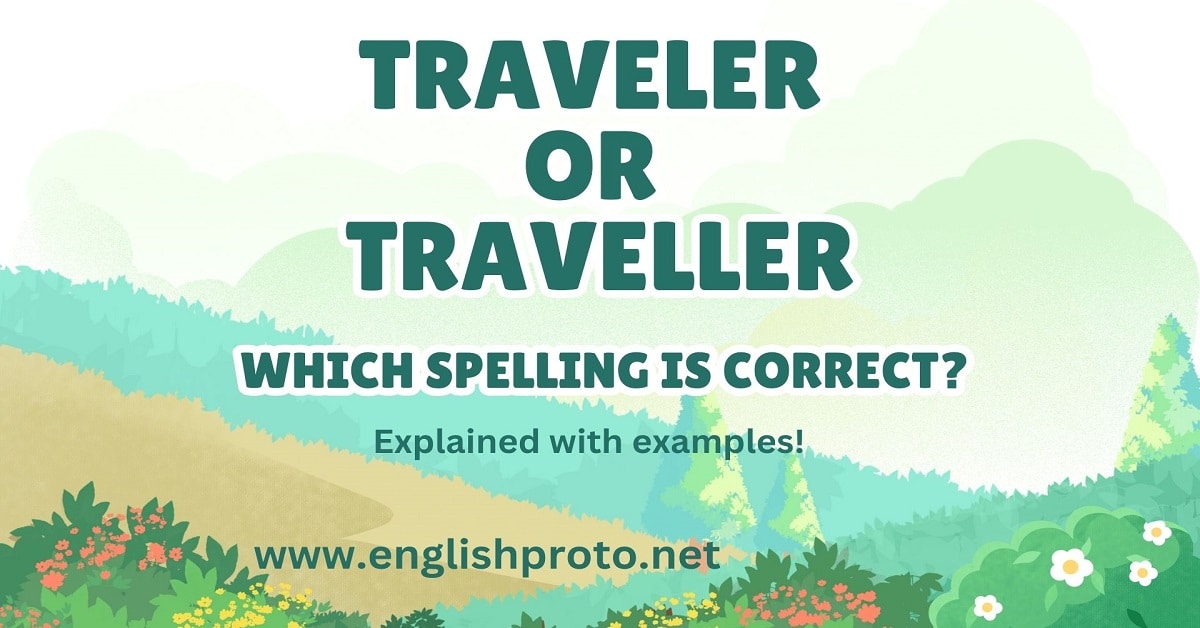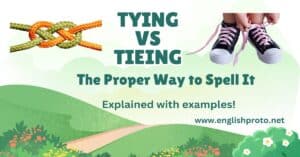Traveler or Traveller: Which Spelling Is Correct? ever wondered which one you should use? If you’ve found yourself second-guessing this common word, you’re not alone.
The difference goes beyond a single letter and can impact how polished your writing appears to your audience. Whether you’re drafting an email, sharing a travel story, or preparing professional content, choosing the right spelling matters.
Here’s the good news: understanding when to use “traveler” or “traveller” is simpler than you think. Stick with us as we break it all down. By the end, you’ll know exactly which form to use and why it makes a difference.
Quick Summary
The correct spelling depends on regional variations in English:
- Traveler: Used in American English.
- Traveller: Used in British English and other forms of English influenced by the UK (e.g., Australian, Canadian).
Both spellings are correct but are tied to different English conventions.
Key Takeaways:
- Traveler is preferred in the United States.
- Traveller is preferred in the UK and Commonwealth countries.
- Both forms share the same meaning and pronunciation.
Reasons for Confusion
Why do these two spellings exist, and why do they cause so much confusion? Here are some reasons:
- Regional Variations in English:
- English has evolved differently in various parts of the world, creating variations like color vs. colour and organize vs. organise. Similarly, “traveler” and “traveller” follow these patterns.
- Influence of Standardized Dictionaries:
- American English largely follows the simplifications introduced by Noah Webster, who aimed to create a distinct American linguistic identity.
- British English has retained older spellings influenced by French and Latin.
- Globalization and the Internet:
- With widespread access to global content, people often encounter both versions, making it harder to remember which spelling aligns with their region.
Detailed Explanation: Traveler or Traveller
American English: “Traveler”
In American English, “traveler” is the standard form. This aligns with the general preference for simplified spellings:
- Double consonants are often reduced to single consonants in words with suffixes.
- Examples: traveling (not travelling), canceled (not cancelled).
Quick Tip: If you’re writing for an American audience, stick with “traveler” to maintain consistency.
British English: “Traveller”
In British English, “traveller” is standard. The double “l” reflects the original spelling traditions rooted in British linguistic history. It’s part of a broader pattern:
- Examples: modelling (not modeling), cancelled (not canceled).
Quick Tip: For audiences in the UK, Australia, or Canada, “traveller” is the go-to choice.
Consistent Meaning
Despite the difference in spelling, both forms mean the same thing: a person who travels. Whether you use “traveler” or “traveller,” the definition remains identical.
Common Errors: Traveler or Traveller
Here are some common mistakes and how to avoid them:
- Mixing Spellings:
- Incorrect: “The traveller was traveling to New York.”
- Correct: “The traveler was traveling to New York.” (American English)
- Inconsistent Usage:
- Incorrect: “He’s an avid traveller who loves traveling.”
- Correct: “He’s an avid traveller who loves travelling.” (British English)
- Using the Wrong Form for the Audience:
- Always adapt your spelling to the audience or publication’s style guide. For instance, an American travel magazine would prefer “traveler,” while a British publication would use “traveller.”
Synonyms or Alternatives
If you’re unsure which spelling to use, consider using synonyms. These can convey the same idea without regional spelling concerns:
- Voyager
- Adventurer
- Explorer
- Nomad
- Wanderer
- Tourist
Quick Tip: While synonyms can work, be cautious of subtle differences in meaning and connotation.
Examples in Sentences
Here’s how you can use “traveler” and “traveller” correctly:
- Traveler (American English):
- “The traveler packed light for her cross-country road trip.”
- “As a frequent traveler, he knew the best airport lounges.”
- Traveller (British English):
- “The weary traveller found a cozy inn after a long journey.”
- “She’s a seasoned traveller who has visited over 30 countries.”
Mixed Context:
- “A traveler’s experiences often shape their worldview.”
- “The travellers shared fascinating stories around the campfire.”
Origins and History
The divergence between “traveler” and “traveller” dates back to the late 18th and early 19th centuries, influenced by linguistic reforms:
- British English maintained older spelling conventions.
- American English adopted Noah Webster’s simplified spellings to distinguish itself from British English.
Historically, both spellings trace back to the Middle English word “travailer,” which originated from Old French, meaning “to toil” or “work hard.” Over time, it evolved to mean journeying or traveling.
Conclusion: Traveler or Traveller
Understanding the distinction between “traveler“ and “traveller” boils down to recognizing regional preferences in English.
Both are correct, but their usage depends on the audience and context. By being mindful of these differences, you can write more effectively and connect with your readers.
Key Takeaways:
- Use “traveler” for American audiences and “traveller” for British/Commonwealth audiences.
- Both spellings share the same meaning and pronunciation.
- Adapting to your audience’s preferences ensures clarity and professionalism.
Quick Tip: When in doubt, consult the style guide of the platform or organization you’re writing for. Embracing the correct spelling enhances your credibility as a writer.



